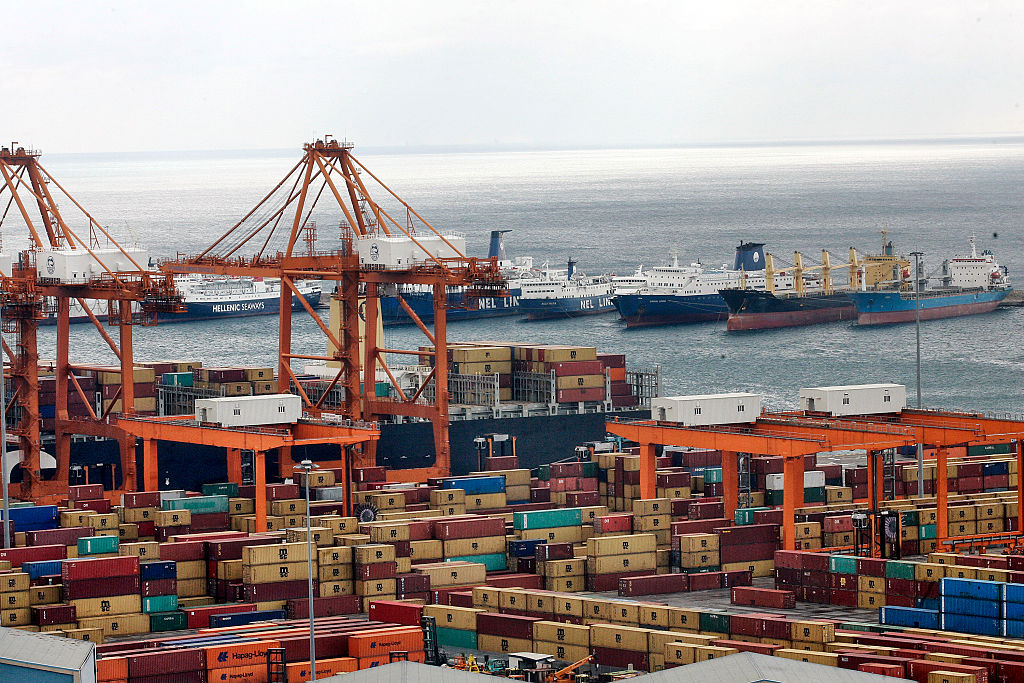There are few things as predictable in global politics as Brussels being caught off guard. Once again, the EU, comfortably numb in its own echo chamber, finds itself scrambling to respond to Washington’s latest move: with Donald Trump back, the US is embarking on a new round of tariffs and this time Europe is firmly in the crosshairs.
Of course, the EU elite, ever convinced of its own moral superiority, will wring their hands, issue strongly worded statements, and insist that the “rules-based order” of structured global relationships is under attack. But let’s be honest: when it comes to trade, Brussels is a paper tiger.
Trump plays hardball, while Europe plays pretend. The new POTUS has made it clear that America will no longer tolerate arrangements that put US workers at a disadvantage. His first term saw a ruthless renegotiation of trade deals and tariffs imposed on China that left European leaders muttering. Now, in round two, Washington is sharpening its tools once again.
Yet, for some strange reason, the EU did not seem to expect that the US would prioritise its own economy. Brussels had hoped for a reprieve, counting on the idea that Washington’s focus would be mainly on Beijing. But the reality is that Europe’s bloated, protectionist economic model is just as much of a target as China’s state-capitalist system.
If anyone in Brussels still harbours illusions, they should take a look at how Trump is now handling other trade partners. Canada and Mexico, once nestled under the United States-Mexico-Canada Agreement (USMCA), are facing a new barrage of tariffs: 25 per cent on steel and aluminium imports and threats of further levies on auto parts and agricultural products. The message is clear. America’s backyard must play by America’s rules.
China, meanwhile, remains Washington’s prime target. Trump’s latest trade offensive has imposed a fresh round of 10 per cent tariffs on Chinese electronics, semiconductors, and consumer goods, escalating the pressure on Beijing to cut unfair subsidies and curb intellectual property theft. The Chinese economy, already grappling with post-pandemic sluggishness and capital flight, now faces even greater turbulence.
And now, it’s Europe’s turn. Washington knows exactly how to apply pressure, hitting European car exports, agricultural subsidies, and green industry handouts where it hurts. The logic is simple: if Canada, Mexico, and even China have to concede to Trump’s trade demands, why should Europe be any different?
Berlin, most of all, should be getting nervous. Germany’s industrial base, already affected by a self-inflicted malaise (first and foremost an energy policy designed by people who hate industry), is set to take a major hit from US tariffs. Washington knows exactly where to strike: German automakers, the backbone of Europe’s economy.
Trump’s argument is simple. If Germany wants to flood the US with automobiles while shutting out American agricultural products with Kafkaesque regulations, then it is time to level the playing field. A new round of tariffs on European cars could send shockwaves through the continent’s largest economy, which is already on the edge of recession.
But it would be a great surprise if Berlin — or Brussels — react with anything resembling a coherent strategy. Instead, we’ll most probably get the usual cycle of outrage, empty threats, and ultimately, submission. The EU’s trade officials will fly to Washington, plead for “dialogue,” and return with little more than nothing meaningful.
The real tragedy here isn’t Trump’s tariffs. It is that the EU is so ill-prepared to handle them.
For years, European leaders have insisted that their economic model is superior. They have bet everything on the idea that “green” industries will magically replace traditional manufacturing, that regulatory overreach will not stifle innovation, and that America will always be there to absorb the economic consequences of European complacency.
Now, the cracks in this fantasy are widening rapidly. European businesses are already struggling under the weight of high energy prices, overregulation, and a self-imposed reliance on fragile supply chains. Trump’s tariffs will not be the cause of Europe’s economic weakness, but a mere result. Still, they can also become a loud wake-up call.
Is there a chance that Brussels will finally grow a spine? The EU could respond by doing what it should have done years ago: prioritise economic self-sufficiency, slash unnecessary regulations, and stop treating industry like an inconvenient relic of the past. It could negotiate with Washington from a position of strength rather than beg for mercy.
But let’s not hold our breath. The Brussels bureaucracy thrives on managing the EU’s decline, convinced that as long as the press conferences are polished and the jargon sufficiently complex, everything is under control. Meanwhile, Trump is doing what Trump does best. He forces reality upon those who avoid it.
Europe needs to look reality in the eye. The question is not whether the EU will suffer from Trump’s new tariff policies, but whether it will finally learn the lesson that America, China, and the rest of the world already understand: global trade is no seminar. It is a jungle. Only the strong survive.





What does Germany think about being a nation — strong, assertive or weak?